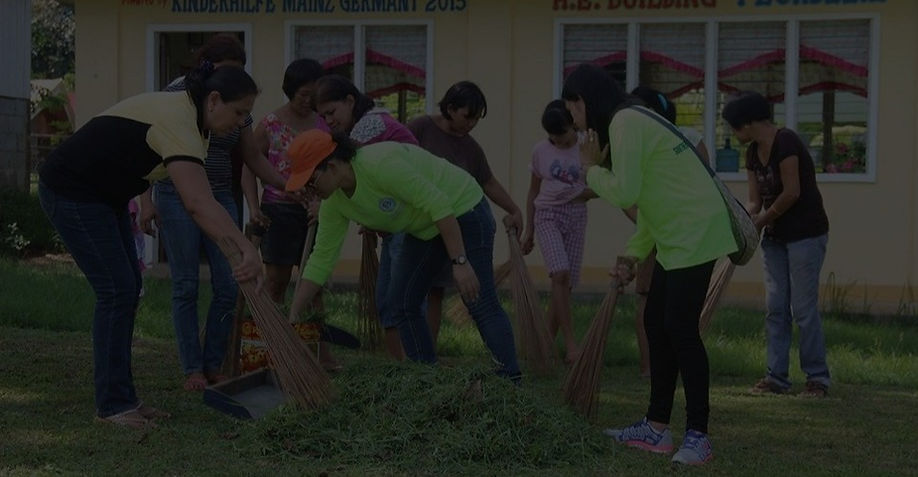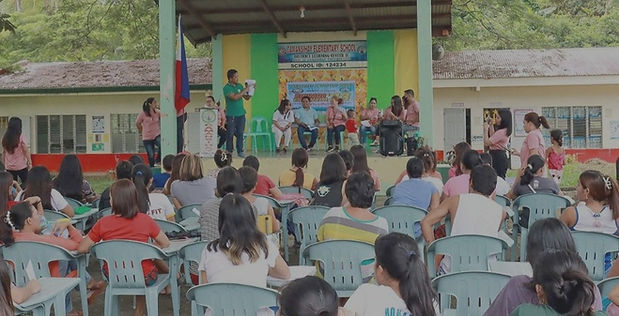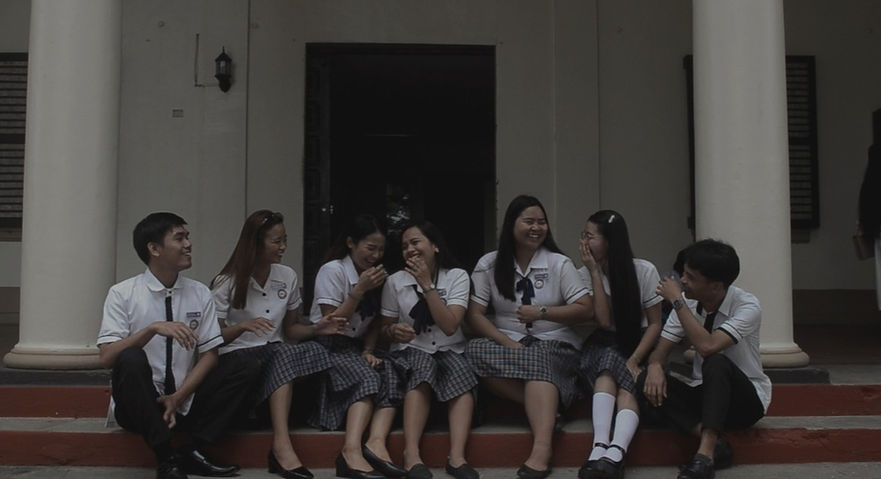
GROUP 1 FIELD STUDY
"A Joyful Journey Towards the Center of Teaching"


DOMAIN 6:
COMMUNITY LINKAGES AND PROFESSIONAL ENGAGEMENT

Image from manilatimes.net
DOMAIN 6:
Community Linkages and Professional Engagement
This Domain highlights the roles of teachers in building school-community relationships aimed at improving the learning environment and engaging the community in the educational process. It emphasizes the significance of teachers recognizing and adhering to their responsibilities to respect professional ethics, accountability, and transparency in order to foster professional and harmonious relationships with students, parents, schools, and the wider community.
INTRODUCTION

Image from iVolunteer Philippines
As future teachers, actively engaging in community linkages is essential. This involves integrating local resources and expertise into lessons, organizing field trips and community projects, fostering students' sense of social responsibility, and promoting inclusivity and diverse perspectives. Collaborating with local organizations to create internships and mentorship programs also helps students connect their education to real-world experiences and future career paths. By embracing these strategies, future teachers can create meaningful and relevant educational experiences that prepare students for active citizenship and lifelong learning.

ACT says schools, teachers ‘not ready’ for Aug. 24. (2020, July 25). Manila Bulletin.
Community linkages are vital connections between educational institutions and the local community, enriching learning experiences. These collaborations provide practical, real-world experiences, exposure to diverse perspectives, and opportunities for networking and community engagement. By bridging schools and the community, students gain valuable skills and a deeper understanding of societal issues, fostering well-rounded personal and academic development.
Tan, J. (2021, February 4). Commentary: Public trust in our educators is fragile and can be easily fractured. CNA.
Teachers play pivotal roles in community linkages by acting as bridges between students and the local community. They facilitate experiential learning by connecting classroom lessons to real-world applications. They also promote diversity and inclusion by acknowledging the community's diverse perspectives and cultures. Moreover, teachers inspire students to engage in community service, nurturing social responsibility. By fostering these connections, teachers create a dynamic, well-rounded education that prepares students for active participation in society and meaningful contributions to their communities.


FIELD STUDY 1
ACTIVITY 6 – Teachers’ Skills and Connection to Community
LET'S ANALYZE!

Question #1
Does school-community engagement influence the educative process? Justify your answer.
Answer
We believe, one way to cater educative process is through social engagements within the community, where learning is not boxed, but rather, sort of like an open book, with endless possibilities, ideas, opinions ranging from one person to another. In our school-community engagement, it does influence the educative process as students are given a chance not just to learn inside the four corners of the classroom but to learn more outside through interacting with people. According to a study of Afzal and Hussan (2020) community service training increases students’ insights of the importance of community work, understanding of diversity, social skills and it helps to build a sense of responsibility. With this, we learn not just from one fountain of knowledge but also from other people who act as scaffolds that guide learning.

Question #2
How would you report achievement or results to the bigger community?
Answer
Reporting achievements or results to the bigger community is important to celebrate successes and maintain transparency. To do this effectively, one must start by clearly defining what has been accomplished and why it matters. It’s important to explain how these achievements benefit the community directly. Next, choosing the right way to share the news is important. Whether it’s through community meetings, newsletters, social media, or simple flyers, the method should align with the community’s preferences. Inviting questions and feedback ensures that everyone’s voice is heard, fostering a sense of involvement and trust. Regular updates keep the community informed about ongoing progress and future plans, creating a stronger bond between the achievement and the community it serves. In sum, clear, inclusive, and accessible communication is the key to sharing achievements and maintaining a strong connection with the community.

Question #3
How do personal and professional skills of a teacher help in preparing his/her tasks/functions?


FIELD STUDY 1
ACTIVITY 6 – Teachers’ Skills and Connection to Community
LET'S REFLECT!

Question #1
As a future teacher, how would you establish good school-community collaboration? How can you work well in the community?
Answer
Establishing good school-community collaboration is essential for a successful teaching career. A strong connection between the school and the community can benefit students, parents, as well as the educators. Hence as a future educator, the teacher will foster open and transparent communication channels between the school and the community. Share information about school activities, events, and initiatives regularly through emails, and social media. Encourage the parents and community members to reach out with their concerns and ideas. Also, the teachers will go to host community listening sessions or forums to gather input on school policies, curriculum decisions, and other important matters. Show that the teachers value the perspectives of community members and are willing to make adjustments based on their feedback.

Question #2
Do you have any advice about how to invite stakeholders to engage in school-community projects/activities?
Answer
One of the crucial things in creating a collaborative and supportive educational environment is engaging the stakeholders in school-community projects and activities. To engage them in school community projects, as a teacher, you must:
1) Know who are your key stakeholders who might be affected by your project. This includes internal and external stakeholders like parents, guardians, fellow teachers, community organizations, and even students themselves;
2) Understand their needs and expectations. Ask questions and listen to them so that you can learn what they want from the project. Once you understand their needs and expectations, you can tailor your communication and engagement efforts to meet your stakeholders' needs;
3) Communicate regularly by keeping your stakeholders informed of project progress, milestones, and changes. This can be done using social media like Facebook and face-to-face meetings; and lastly,
4) Ask for their feedback by involving their inputs or ideas during the decision-making process. They can be more engaged and invested in the project if they feel their opinions and feedback are valued.

Question #3
In the future, how will you enhance your personal and professional development?
Answer
Teacher development is a key to help students acquire 21st-century abilities and adapt education to the demands of a knowledge-based society. We do believe that learning shouldn't be stopped regardless of your age, as the world continues to dynamically change and evolve. Our personal growth can be enhanced by exploring new things, reading a lot of books, enrolling in classes, accept opportunities, and do anything that might help our growth and development as individuals.
On the other hand, to improve our professional development, we will continually reflect on, assess, and analyze our own teaching strategies as these can help us build new teaching theories and enhance our performance. Also, we will explore and discover new approaches or resources in our lessons, think about how they affect student's learning, and then take further action to help them accomplish their goals and share their experiences.


Group Video Presentation
You can watch our group video presentation about Domain 6: "Community Linkages and Professional Engagagement" in our official YouTube channel.
Click here!


School-community engagement is a key factor in improving student achievement. It involves the school and community working together to improve education. Certainly, as PSUnians, we have observed that community engagement in education entails more than just the educational aspect. It is about the development of one’s personality and character. When schools and community organizations work together to advance learning, it benefits everyone involved.




